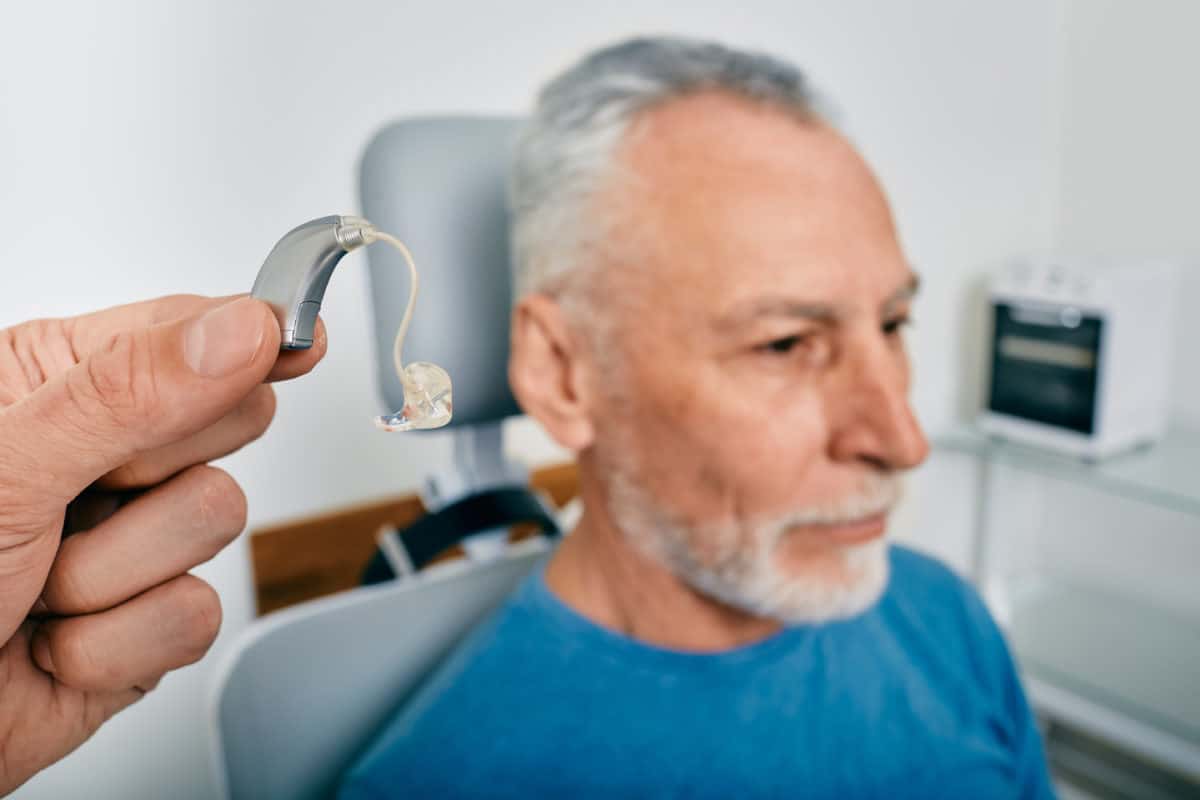- How to Know It Is Time to Upgrade Your Hearing Aids - April 8, 2024
- Hearing Aids 101: A Comprehensive Buyer’s Guide - March 4, 2024
- Navigating Communication Gaps in the Face of Hearing Loss - February 9, 2024
Hearing loss is a common issue among older adults. It impacts every aspect of life from communicating with family and friends to independence.
Addressing hearing loss can be equally challenging but is vital to your loved one’s care. Environment modifications such as reducing background noise and providing well-lit areas to talk can make a big difference. Even more so, hearing aids can be used to improve and treat hearing loss. However, how these changes impact their care is crucial to understand as well.
Social improvements
The isolation that those with hearing loss experience has been well documented. Whether they are new to hearing loss or have lived their whole lives with it, communicating is considerably more difficult for the hard of hearing.
By addressing some of these challenges they can be more included in the conversations, people, and world around them. Hearing aids are a common treatment for those with hearing loss. Hearing aids work to amplify the specific sounds and frequencies that the wearer specifically needs. They are impressive devices that allow those with hearing loss to hear and understand more easily.
However, hearing aids are not a quick fix to hearing loss and those wearing hearing still require modifications to hear and understand those around them.
It will likely come as no surprise that when social isolation is addressed, whether through hearing devices, environment modifications, or both, mental wellness is better managed.
Allows older adults to participate in their care
As we age, there seem to be more and more medical appointments. One of the major benefits of addressing and treating hearing loss is the power it gives back to those suffering from it. Being able to understand everyone, including their caregivers and doctors, allows your loved one the chance to be clear in what they are experiencing and how they wish to continue care.
This inclusion in their care will likely lead to greater compliance as well.
Independence
A common fear that comes with aging is a loss of independence and with hearing loss, this may be even more so. For example, going to the grocery store can suddenly be more difficult. Talking to the cashier or asking someone for help finding the aisle you need are all things that were once simple but now can induce fear.
Giving older adults the knowledge and tools they need to complete these tasks for themselves increases independence at an age where this is a priority.
Hospital and long-term care settings
A lack of knowledge and understanding regarding hearing loss on the part of the caregiver can lead to incomplete or substandard care.
Find a way to inform all caregivers that their patient is hard of hearing. A sign on their door or a warning note in the chart would alert everyone before speaking with them that your loved one is hearing impaired.
Sometimes, even with the hard of hearing alert, people may not know what changes to make to help someone hear better. Providing a list of steps to take when speaking to their patient and putting it above the bed or on the wall will educate everyone involved in their care. It will ensure that everyone entering the room to interact with the patient is doing everything they can to include them in the conversation.
The list could look something like the following:
- Check to make sure the patient is wearing hearing aids
- Turn off the television and other background noise
- Face the patient at eye level when speaking to them
- Make sure the room is well lit and that the patient can see you
Hearing aids require maintenance care to continue working well. For example, the batteries can be rechargeable or may require replacing as often as every 3-7 days. Make sure the supplies to care for their hearing devices properly are available and within reach. If your loved one is unable to take these steps on their own, add it to the posted list of steps for caregivers.
We should all have a say in the care we want to receive. Ultimately, giving older adults the tools they need to participate in their care and speak up for themselves will positively impact their care.

